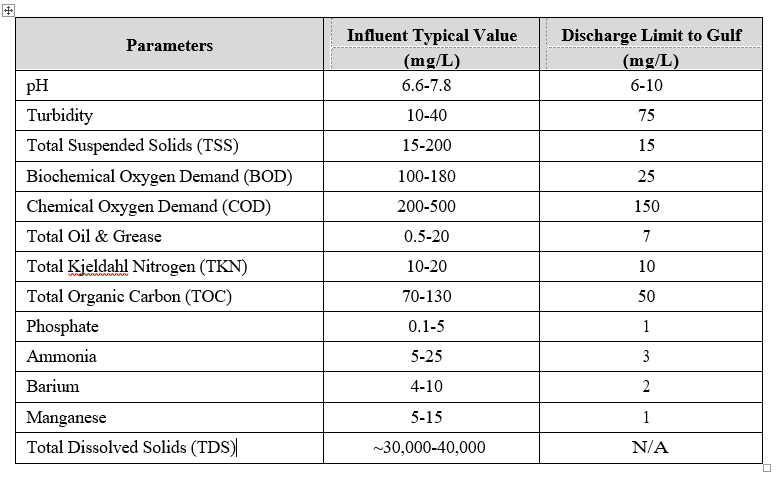Abderrahmen bouchhima
Chemical
- May 18, 2021
- 2
Dear ALL
I am currently working on a project dealing with constructing/provideing a waster treatement plant with a capacity of 1500 m3/day.
The water is comming from an "oilfiled" ( treated through a 3 phase separator then the oily water is passed through an API seprator then the client disposed in 3 evaporation pounds).
Our scope is to treat the water from the evaporation pounds. the water quality is as follow

I started to design the WWTP as follow:
Screen+ DAF, then combiened MBBR and MBR treatment, then chlorine injection.
As I started the requests for qutation, most suppliers stated that the biological treatment won't survive the high TDS.
So i kinldy ask if any one can help me to choose the right treatment?
Thank you in advanced.
I am currently working on a project dealing with constructing/provideing a waster treatement plant with a capacity of 1500 m3/day.
The water is comming from an "oilfiled" ( treated through a 3 phase separator then the oily water is passed through an API seprator then the client disposed in 3 evaporation pounds).
Our scope is to treat the water from the evaporation pounds. the water quality is as follow

I started to design the WWTP as follow:
Screen+ DAF, then combiened MBBR and MBR treatment, then chlorine injection.
As I started the requests for qutation, most suppliers stated that the biological treatment won't survive the high TDS.
So i kinldy ask if any one can help me to choose the right treatment?
Thank you in advanced.
